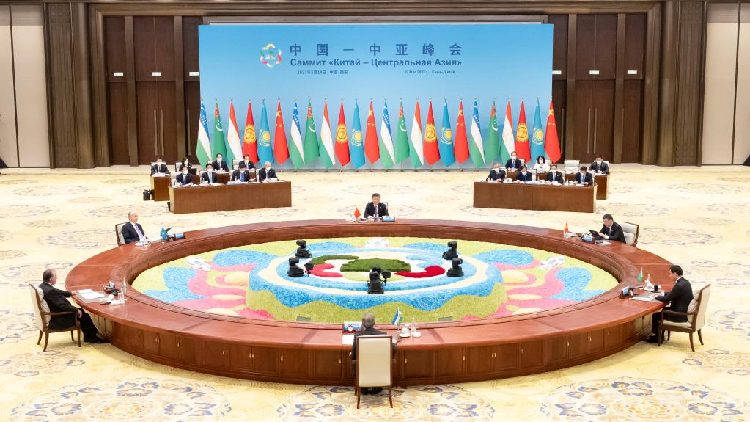Takeaways from China-Central Asia Summit declaration

Xi’an, The Gulf Observer: The China-Central Asia Summit concluded in Xi’an, northwest China’s Shaanxi Province, on Friday.
During the summit, leaders of China and Central Asian countries signed and released the Xi’an Declaration of the China-Central Asia Summit and adopted a list of summit outcomes.
Here are three takeaways from the summit.
Building a closer China-Central Asia community with a shared future
According to the declaration, both sides agreed that China maintains fruitful all-round cooperation with the five Central Asian countries, which serves the fundamental interests of the six countries and their peoples.
The six countries are determined to work together to rise to challenges and foster a closer China-Central Asia community with a shared future.
Taking the summit as an opportunity, a mechanism for meetings among the heads of state of China and Central Asian countries has been officially established, with the two sides – China and Central Asian countries – taking turns to host the biennial summit.
All parties will accelerate the building of the China-Central Asia mechanism, establish a ministerial meeting mechanism as soon as possible in key and priority areas of cooperation, and give full play to the role of their foreign ministries, it said.
Hailing the significance of jointly building the Belt and Road Initiative (BRI) in leading international cooperation, the six countries agreed to coordinate their respective development strategies with the BRI.
Closer cooperation
Recognizing the huge potential in cooperation between China and Central Asia, the six countries decided to comprehensively increase the scale of trade and expand cooperation in emerging fields such as digital trade and the green economy, according to the declaration.
All parties are willing to promote the cooperation and development of infrastructure and engineering construction, accelerate the connectivity of digital and green infrastructure, and jointly advance the sustainable development of cooperation in infrastructure and engineering construction, it said.
The six countries agreed to hold the forum on industrial and investment cooperation between China and the five Central Asian countries on a regular basis, upgrade the investment agreements between China and the Central Asian countries, and encourage the expansion of industrial cooperation to enhance the level of regional industrial development.
They also vowed to speed up the construction of the cross-border railway that connects China, Kyrgyzstan and Uzbekistan.
In terms of green development, they agreed to accelerate the modernization and building of existing port facilities for implementing “green channel” fast clearance of agricultural and sideline products at all border ports between China and the Central Asian countries.
All parties will take effective measures to raise the cross-border freight volume to build an all-round, complex, three-dimensional, low-carbon and sustainable transportation infrastructure system between China and Central Asia.
In agriculture, the six countries vowed to tap the potential of agricultural cooperation to promote trade in agricultural and livestock products.
They are willing to actively develop smart agriculture, strengthen the application of water-saving, green and other efficient technology, and exchanges of advanced experience.
Stressing the importance of jointly improving policies for reducing poverty, increasing employment and income, and creating jobs, the six countries agreed to strengthen cooperation in the above-mentioned fields, introduce effective policies, and carry out expert and business exchanges.
Supporting the building of a China-Central Asia energy development partnership, they pledged to expand cooperation in the energy industry chain and further expand cooperation in traditional energy fields such as oil, natural gas, and coal.
China has invited Central Asian countries to participate in the Cultural Silk Road program to promote people-to-people bonds.
A more stable, thriving and prosperous Central Asia
The six countries agreed to jointly crack down on the “three forces” of terrorism, separatism and extremism, drug trafficking, transnational organized crime, cybercrime, and other activities, according to the declaration.
Noting that security and development are the prominent issues facing the international community today, the Central Asian countries hailed the Global Development Initiative, the Global Security Initiative and the Global Civilization Initiative, and vowed to participate in each.
All parties are willing to strengthen dialogue and cooperation within multilateral mechanisms such as the United Nations, the Shanghai Cooperation Organization, and the Conference on Interaction and Confidence Building Measures in Asia, and exchange views and coordinate positions on regional and international hotspot issues in a timely manner.


